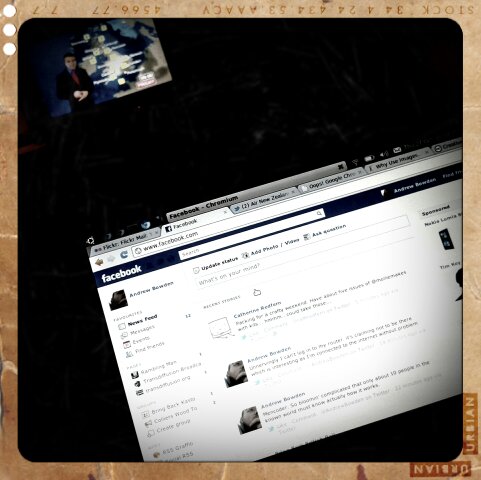I’ve been transfixed by a particular reality television show on Netflix. I’m not typically a reality TV kind of guy, save for a few of the more hands-on creative shows. And the ones with drag queens, of course.
This show documents the Olympic-like achievements of super-couponers, who, if you don’t know, are people who stockpile mass amounts of food through the meticulous, methodical use of coupons. These stockpiles are worth thousands of dollars, but the couponers accumulate them for next to nothing.
I watched six episodes in my first sitting. My train of thought looked something like this:
Wow — are all couponers southern?
And Christian?
How is there this parallel between Christianity and stockpiling food? Is that biblical?
They are really going to extreme lengths to stockpile that Mountain Dew.
Everyone looks so unhealthy. Sure, you can fill six refrigerators with frozen food, but what is in that frozen food? Is that really something that supports your body’s health?
Do they ever think about where there food comes from, I wonder. Is that a privileged way of thinking?
They’re broke. They’re feeding families of eight on less than $100 per month. I shouldn’t judge.
But how do you just have eight kids? My god, straight people have a lot of sex.
All of these products in the stockpile are the lowest grade available. The detergent is probably the worst kind that could go into the water supply, the soaps are made with petrochemicals, the boxed foods are packed with preservatives — they’d have to be, if they’re going to sit on those shelves forever, and the plastic — the plastic — there is so much plastic.
Wow, they are really getting a savings, though. She’s keeping her family alive. There’s something to be said for that.
In some earlier time, these people would have been farmers. This lady with the two binders of coupons, who spends 30-60 hour per week riffling through the newspaper inserts and online forums would have, in some pre-agribusiness world, been concerned with the soil. She would have had a seed stockpile. She would have canned. Her kids, who sit next to her at the dining room table and help cut coupons, would have been in the field picking vegetables. And the food they ate, it would have been real food. It would have been food of the earth, more than food of the lab.
But those savings… look at those savings…
The show leaves me conflicted. I do get a little rush when I see the woman score $1,000 worth of food for a penny. It’s like a consumer triathlon. She’s a champion.
But I watch them cart away the bottom of the barrel (in terms of quality) food, and I feel bad for them. I feel like their bodies are being robbed of nutrition, and that their success in frugality merely reinforces the system which pumps toxic chemicals, preservatives and plastics into their bodies.
I sit on my couch, and I make observations. I judge them, I root for them, I analyze them, and ultimately, I dehumanize them. It’s what reality TV is made to do. I watch them shop, and I think about how I shop. I look at their choices, judge them a little, and then think about how I make my choices.
I hold court in my living room.
The medium allows me to dehumanize them, to turn them into an idea, a concept, a symbol of what is wrong about the American food industry. Our social media and blogging networks make possible a similar behavior, and I feel like there’s a parallel here with the conversation that’s been going on around Star Foster’s decision to back away from Paganism.

Star has been a blogger for a while, and bloggers share a lot about themselves. Some of Star’s readers have sat back and rooted for Star and others have been her chorus of naysayers. But all of us who took the opportunity to use Star’s public, but personal, choice to hold court from our couches — myself included — are participating in a kind of reality TV of our own.
We’re making each other into symbols, into characters in a grocery store, into something to champion or something to criticize. These symbols we become represent our fears about our collective future, our hopes for something better, our doubts and suspicions and reservations about one another. This act of symbol-making, easy as it is to fall into, might be substituted with something more productive.
What if, for example, as a community, we spent the same amount of time and energy that we used to discuss Star’s choice to unpack the definition of the “pagan sensibility” that Jonathan Korman wrote about in his December 30th post, which he defines as:
The pagan sensibility sees the divine in the material world … and so regards the human as sacred.
The pagan sensibility apprehends the Cosmos as composed of a multiplicity of different interconnected forces … and honors all of those forces.
Would it be, I wonder, more beneficial for us to have a thriving, active dialogue about what “Pagan” might include, rather than what — or who — is not a part of it?
[A public note to Star: If my sharing of your post led to an unwanted onslaught of attention and judgement, I apologize. As I wrote in the comments of your post, I do wish you the best on this journey — however that journey is defined by you.]
Leave a Reply